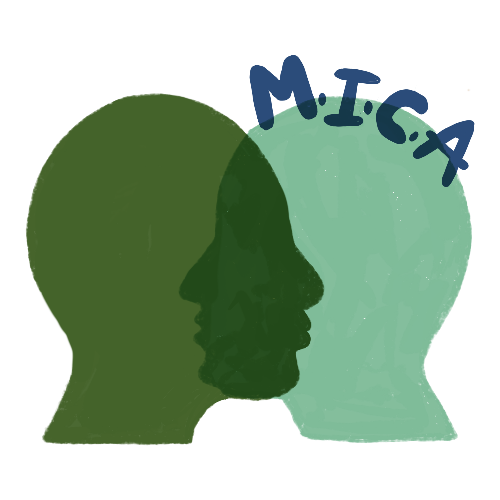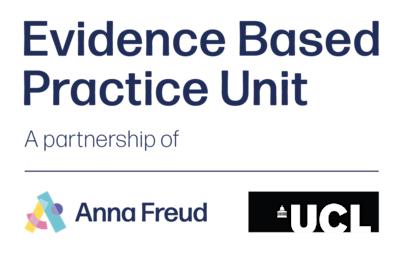The MICA Study
The MICA study is exploring whether Mentalization-Based Therapy can help young people better manage aggressive or violent behaviours.

Background to the study
Over 80% of referrals to Forensic Child and Adolescent Mental Health Services (FCAMHS) have aggression or violence as the primary reason for referral (based on South West (North) FCAMHS data, 2022–23).
Currently, there is no psychological therapy specifically designed for the high levels of complexity and need presented by these young people. This is an underserved group, which often includes other underserved populations - for example, children with learning disabilities.
Previous studies have shown that children with conduct and emotion disorders have reduced mentalizing abilities. This is also true for children who have been detained due to violent crimes. Therefore, mentalizing is considered a protective factor against externalising behaviours such as aggression.
About the MICA study
The Mentalizing Intervention for Children and Adolescents (MICA) study, is being run to find out how helpful a specific type of therapy is for young people who struggle with violent and aggressive behaviours. We will explore this using a two-armed randomised controlled trial (RCT) comparing Mentalization-Based Therapy (MBT) with the support usually provided by FCAMHS.
The intervention will be delivered through 11 community FCAMHS across England. The trial aims to recruit 632 participants (316 in each group) and includes an internal pilot phase running until May 2026. The full study will complete in September 2027.
This research is a partnership between Anna Freud, the University of Hertfordshire, and Oxford Health NHS Foundation Trust.
Watch our explainer video
This short animation explains the MICA study.
It outlines what the study involves and helps you decide whether you would like to take part.
This video should be watched alongside the participant information sheet.
What is Mentalization-Based Therapy (MBT)?
Understanding mentalization
Mentalization is the ability to attempt to understand what someone else might be thinking or feeling, as well as recognising our own thoughts and feelings. Some people find this more tricky than others, which can make it harder to understand themselves and others. As a result, they may find it difficult to manage emotions, are more likely to come into conflict with others and could act in aggressive or violent ways.
How MBT helps young people
MBT is designed to help people develop and maintain a mentalizing position so they can better understand their own and be curious about others’ thoughts, feelings and behaviours. This can improve emotional regulation and strengthen relationships.
MBT can be used with children as young as six years old and can be adapted for young people who are neurodiverse.
Aims of this study

Aim 1: Effectiveness
To test the effectiveness of MBT compared with the usual support provided by FCAMHS.

Aim 2: Implementation
To understand how MBT is implemented in different settings.

Aim 3: Evidence-based
To provide evidence to inform the best possible care for young people who display aggressive or violent behaviours.
Eligibility criteria
Who can take part
Young people may be eligible if they:
are aged 10-17 years old
have problems with aggression/violence identified at referral or assessment
can consent and engage with study materials, including speaking and understanding English
will not have their participation interfere with statutory orders
live in the community with no plans to move to alternative accommodation (e.g. hospital or secure settings).
Who cannot take part
The study is not suitable if:
the young person refuses to engage with FCAMHS
there is no statutory service involved, or the statutory service will not keep the case open during the study
the young person is already in another psychological intervention research study
FCAMHS is offering only a one-off consultation or assessment
there are immediate serious safeguarding concerns that take priority, or taking part would present an immediate risk of harm to self or others or would escalate an existing risk.
Funding and support
The project is being funded by the Youth Endowment Fund (YEF). YEF is a charity working to prevent children and young people from becoming involved in violence. By funding early-intervention research like this study, YEF builds and shares the best evidence on what works to keep young people safe.
You can find more information about YEF, here.
Meet the team

Julian Edbrooke-Childs
Chief Investigator
Heads up the Research team.

Hannah Allcott-Watson
Trial Manager
Responsible for setting up and running the study in accordance with regulatory approvals.

Innamana Pettyll
Research Officer
Supports the Trial Manager in day-to-day running of the trial.

Emily Stapley
Senior Research Fellow
Leads on the Implementation and Process Evaluation part of the study.

John-Mark Poppleston
FCAMHS SWN Clinical Team Manager & Operational Lead
Overseeing the operational delivery of the trial within Community Forensic CAMHS.

Andrew Newman
Consultant Clinical Psychologist and Accredited MBT & MBT-A Supervisor
Clinical Lead overseeing the clinical delivery of the trial within Community Forensic CAMHS.

Catherine Phillips
Project Manager
Co-ordination of R&D, contracts, recruitment & performance monitoring of operational delivery across the FCAMHS sites.

Emily McDougal
Research Fellow
Leads on the Implementation and Process Evaluation part of the study.



